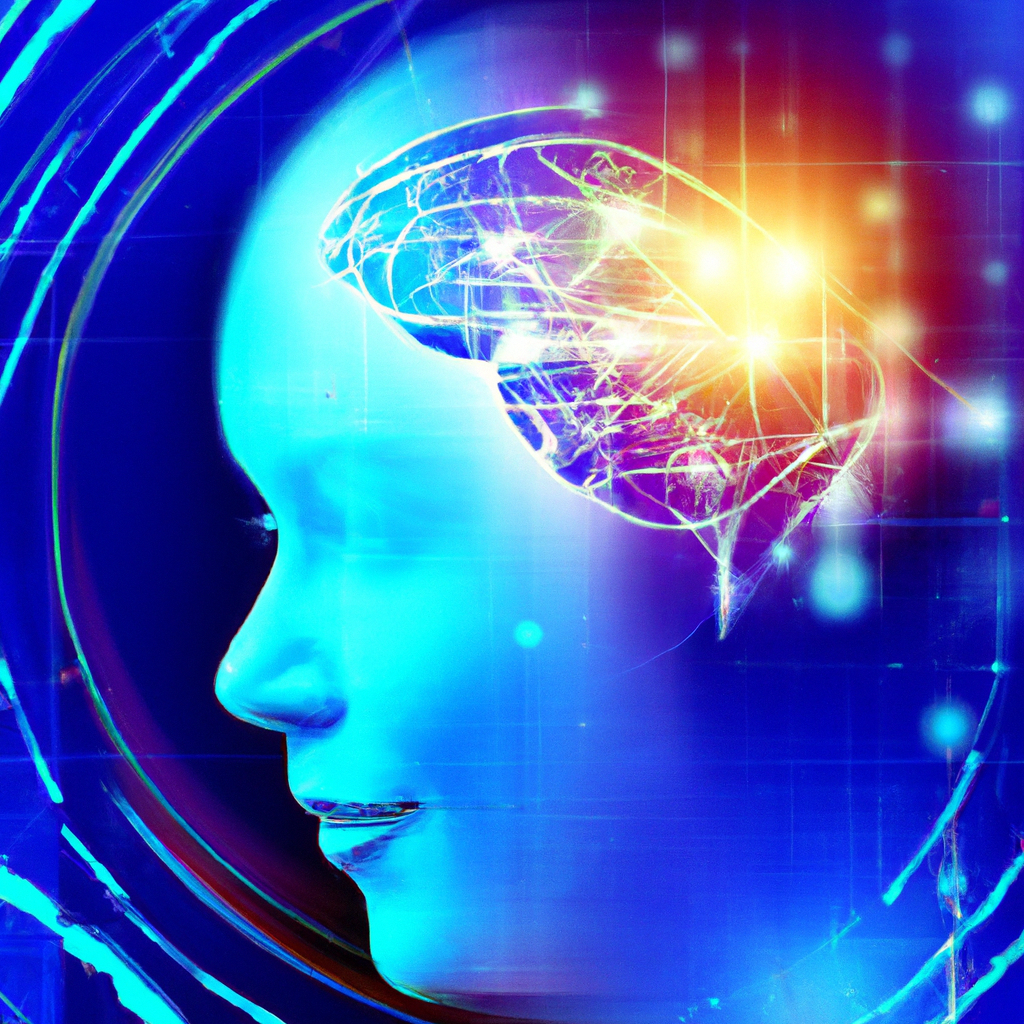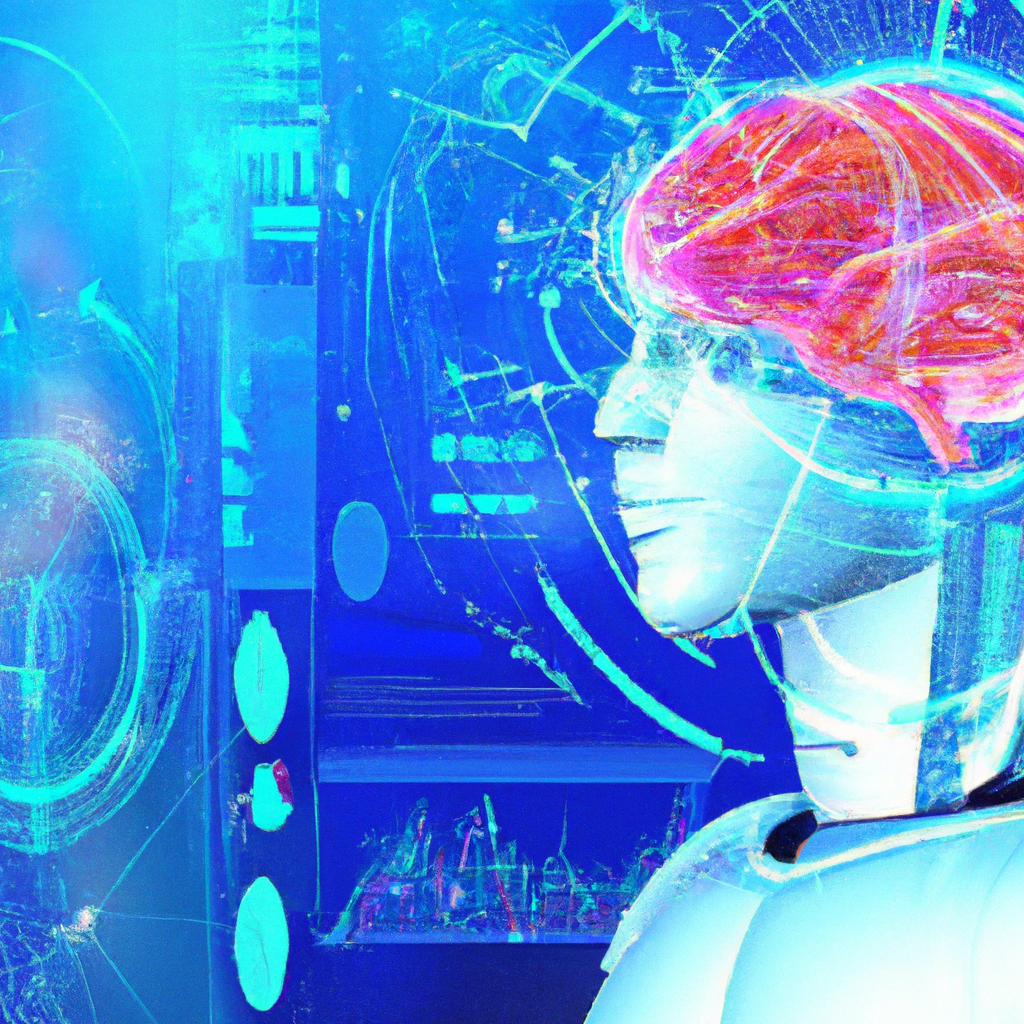In today’s fast-paced world, the issue of mental health has become increasingly prevalent. With the rise in cases and limited resources, exploring alternative methods of treatment has become essential. Artificial Intelligence, or AI, has emerged as a potential solution to this problem. This article delves into the question: Can AI really help in mental health treatment? From chatbots providing support to virtual reality therapy, technological advancements are revolutionizing the way mental health is approached. Join us as we explore the possibilities and potential benefits AI holds for mental health treatment.
Overview of AI in Mental Health Treatment
Mental health treatment is a complex and challenging field, with a multitude of factors influencing diagnosis, treatment, and recovery. However, recent advancements in artificial intelligence (AI) have the potential to revolutionize the way mental health is addressed. This article will explore the current challenges in mental health treatment, the potential benefits of using AI, and the ethical considerations that arise from its implementation.
Current challenges in mental health treatment
Mental health treatment faces several challenges, including limited resources, long waiting times, and a shortage of mental health professionals. Additionally, misdiagnosis and the lack of personalized treatment plans contribute to the inefficiency of the current system. These challenges often result in delayed or inadequate treatment, negatively impacting patient outcomes and overall public mental health.

This image is property of images.pexels.com.
Potential benefits of using AI in mental health
The integration of AI in mental health treatment has the potential to address the current challenges and improve patient care. AI can serve as an efficient screening tool, automating the assessment process and reducing waiting times. With AI-powered systems, mental health professionals can make more accurate diagnoses, leading to personalized treatment plans tailored to each individual’s needs. AI can also aid in early detection and intervention, allowing for timely support and preventing the progression of mental health disorders.
Ethical considerations
While the potential benefits of AI in mental health treatment are promising, there are important ethical considerations that need to be addressed. One primary concern is data privacy and security. In order for AI algorithms to work effectively, they require access to sensitive personal information. It is crucial to ensure that this data is handled securely and with the utmost confidentiality to protect the patient’s privacy and maintain trust in the system.
Another ethical consideration is the need to ensure that AI algorithms are unbiased and free from discriminatory practices. Algorithms that are not properly calibrated or influenced by biased data may perpetuate existing disparities in mental health treatment. It is important to regularly assess and revise these algorithms to eliminate any biased outcomes.
Additionally, maintaining human connection and empathy is a crucial aspect of mental health treatment. While AI can enhance efficiency and provide access to treatment, it is essential to strike a balance between technology-driven solutions and human interaction. Mental health professionals must be actively involved in the implementation of AI to ensure the preservation of the therapeutic alliance and the human touch.

This image is property of images.pexels.com.
AI-Based Tools in Mental Health Assessment
AI as an efficient screening tool
AI can streamline the mental health assessment process by automating certain tasks traditionally performed by mental health professionals. Through machine learning algorithms, AI can analyze large volumes of data and identify patterns that may indicate the presence of a mental health disorder. This enables faster screenings and reduces the burden on mental health professionals, allowing them to focus on more complex cases.
Automated diagnostic systems
Accurate diagnosis is pivotal in mental health treatment, as it forms the foundation for personalized care plans. AI-powered diagnostic systems can utilize machine learning algorithms to analyze data from multiple sources, such as electronic health records, self-reports, and genetic information. By considering a wide range of information, AI can assist mental health professionals in making more accurate diagnoses, leading to targeted and effective treatment strategies.
AI-powered virtual assistants
Virtual assistants powered by AI can offer continuous support and guidance to individuals seeking mental health information or assistance. These virtual assistants can provide personalized recommendations, self-help strategies, and access to relevant resources. The 24/7 accessibility and anonymity of virtual assistants ensure that individuals can access support whenever they need it, reducing the stigma associated with seeking help for mental health concerns.
Personalized Treatment Planning with AI
Leveraging AI for personalized treatment plans
AI can optimize treatment planning by incorporating individual patient characteristics, such as demographics, medical history, and symptom severity. Machine learning algorithms can analyze vast amounts of data to identify treatment patterns that yield the best outcomes for specific patient profiles. By leveraging AI, mental health professionals can develop personalized treatment plans that address the unique needs of each individual, leading to more successful outcomes.
Optimizing medication and therapy recommendations
Finding the right medication or therapy approach for each patient can be a trial-and-error process. AI can help streamline this process by analyzing a patient’s characteristics and treatment history to predict the most effective interventions. By considering various factors, such as genetic information or previous treatment responses, AI algorithms can provide mental health professionals with tailored medication and therapy recommendations, improving treatment efficacy.
Predicting treatment response
With the use of AI, mental health professionals can predict how individuals are likely to respond to specific treatments. By analyzing data from similar patient profiles and treatment outcomes, AI algorithms can generate predictions that inform treatment decisions. This allows for a more proactive approach to treatment, enabling mental health professionals to adjust interventions early on if the predicted response is not as expected, ultimately improving patient outcomes.

This image is property of images.pexels.com.
AI in Early Detection and Intervention
Detecting early signs of mental health disorders
Early detection of mental health disorders is crucial for preventing their progression and minimizing the associated long-term consequences. AI can play a vital role in identifying early signs through the analysis of various data sources, such as social media posts, language patterns, or physiological measurements. By recognizing subtle indicators, AI algorithms can alert mental health professionals to potential concerns, facilitating early intervention and support.
Real-time monitoring through wearable devices
Wearable devices equipped with AI algorithms can continuously monitor an individual’s physiological and behavioral patterns. This real-time data can provide valuable insights into an individual’s mental well-being and enable early detection of changes that may indicate the presence of a mental health disorder. By tracking these patterns, mental health professionals can intervene promptly and provide appropriate support, maximizing the chances of successful treatment.
Interventions and support in crisis situations
AI can be particularly valuable in crisis situations, where immediate support is essential. By analyzing data from emergency hotlines, chat logs, or social media platforms, AI algorithms can detect signs of distress or potential self-harm indicators. This enables the timely delivery of interventions and support services, potentially saving lives and providing crucial assistance during critical moments.
AI-Enhanced Therapy and Support
Virtual reality therapy
Virtual reality (VR) therapy utilizes AI algorithms to create immersive and realistic environments that simulate therapeutic scenarios. By exposing individuals to controlled VR environments, mental health professionals can help them address and overcome specific fears or traumatic experiences in a safe and controlled manner. VR therapy offers a unique opportunity for individuals to undergo therapeutic interventions in a virtual setting, expanding the possibilities of traditional therapy approaches.
Chatbots and conversational agents
Chatbots and conversational agents provide individuals with an anonymous and easily accessible platform to express their thoughts, emotions, and concerns. These AI-powered tools can engage in conversation, offer empathetic responses, and provide evidence-based information and coping strategies. Individuals can interact with these virtual agents at any time, receiving immediate support and assistance, reducing the barriers associated with seeking help for mental health concerns.
24/7 accessibility and anonymity
One of the significant advantages of AI in mental health treatment is the accessibility it offers. With AI-powered tools, individuals can receive support and guidance at any time, regardless of their location. This round-the-clock availability ensures that individuals can access help when they need it the most, reducing the likelihood of crises and improving overall mental well-being. Additionally, the anonymity provided by AI-powered platforms helps alleviate the stigma often associated with seeking help, encouraging more individuals to seek support.

AI for Suicide Prevention and Crisis Management
Identifying suicide risk factors
AI algorithms can analyze large amounts of data, including social media posts, online interactions, or search queries, to identify signs of suicidal ideation or distress. By recognizing key risk factors and patterns, AI can help mental health professionals prioritize individuals at higher risk and ensure appropriate interventions are implemented promptly.
Monitoring social media for crisis alerts
Social media platforms can serve as a valuable source of information for detecting mental health crises. AI algorithms can monitor posts, comments, or images and identify signs of distress or potential self-harm indicators. By continuously analyzing social media content, AI can alert mental health professionals or emergency services when individuals are in crisis, enabling immediate support and intervention.
Integrating AI with helpline support
AI-powered virtual assistants can enhance helpline support services by providing immediate triage and support to individuals in distress. Virtual assistants can assess the urgency and severity of the situation, provide appropriate resources and coping strategies, and facilitate the connection with a human crisis counselor when necessary. This integration of AI with helpline support ensures timely assistance and enables individuals to access support even when human resources are limited.
Ethical Considerations in AI-Assisted Mental Health
Data privacy and security
The collection and analysis of personal and sensitive data are integral to the effective functioning of AI algorithms in mental health treatment. It is vital to prioritize data privacy and security to protect the confidentiality of patient information. Strict protocols and encryption mechanisms should be implemented to ensure that personal data is handled securely and only used for its intended purpose.
Ensuring unbiased algorithms
AI algorithms are only as effective as the data on which they are trained. Biased data can lead to discriminatory outcomes, perpetuating disparities in mental health treatment. Regular assessment and auditing of AI algorithms are required to identify and rectify any bias that may have emerged during training. Ensuring the diversity and representativeness of training data is crucial to developing unbiased algorithms that can benefit all individuals.
Maintaining human connection and empathy
While AI can provide significant support in mental health treatment, it is crucial to avoid complete reliance on technology-driven solutions. Mental health professionals must maintain a human connection and empathy throughout the treatment process. Regular human interaction and the preservation of therapeutic alliance are essential for establishing trust and ensuring the holistic well-being of individuals receiving mental health support.

Limitations and Challenges of AI in Mental Health
Lack of human touch and emotional understanding
One of the primary limitations of AI in mental health treatment is the inability to replicate the human touch and emotional understanding that mental health professionals offer. Human interaction, empathy, and the ability to understand the intricacies of each individual’s unique experiences are central to effective treatment. While AI can enhance efficiency and provide valuable support, it should not replace the essential role of mental health professionals in delivering empathetic and emotionally attuned care.
Misdiagnosis and reliance on algorithms
Reliance on AI algorithms for diagnosis and treatment recommendations can pose challenges, as misdiagnoses and errors may occur. AI algorithms are trained on data patterns, and there is always the possibility of misinterpretation or inaccurate predictions. Mental health professionals must approach AI outputs with caution and use them as tools to support their clinical judgment and expertise rather than substituting them entirely.
Potential data and algorithmic biases
AI algorithms are susceptible to biases if not properly designed and calibrated. Biased training data may lead to discriminatory outcomes, exacerbating existing disparities in mental health treatment. Striving for diversity and inclusivity in data collection and constant monitoring of algorithmic performance are crucial to ensure unbiased outcomes and equitable access to mental health support for all individuals.
Future Perspectives and Research Directions
Advancements in AI technology
The rapid advancements in AI technology offer promising opportunities for further integration into mental health treatment. As AI algorithms become more sophisticated, they can better analyze complex data, identify subtle patterns, and personalize treatment plans. Continued research and development in AI can contribute to the refinement and expansion of AI applications in mental health, ultimately improving patient outcomes.
Collaboration between AI and mental health experts
Collaboration between AI experts and mental health professionals is key to maximizing the potential of AI in mental health treatment. By combining the expertise of mental health professionals and the technical knowledge of AI researchers, innovative solutions can be developed that address specific challenges in the field. Regular collaboration ensures that AI technology aligns with the goals and values of mental health treatment, providing ethical and effective interventions.
Exploring new applications and interventions
As AI technology continues to evolve, it opens avenues for exploring new applications and interventions in mental health treatment. Virtual reality therapy, chatbots, and wearable devices are just the beginning of what AI can offer. The field of AI-assisted mental health treatment is ripe for innovation, and the exploration of new applications and interventions can lead to groundbreaking advancements in the field, providing individuals with more effective and accessible support.
Conclusion
AI has the potential to revolutionize mental health treatment by addressing current challenges, providing personalized care, and enabling early detection and intervention. While ethical considerations and limitations exist, the integration of AI with the expertise of mental health professionals offers a promising pathway to improved mental health outcomes. By leveraging AI technology, mental health treatment can become more efficient, accessible, and tailored to meet the diverse needs of individuals seeking support.
